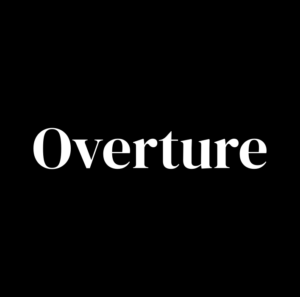Business Development For Women Lawyers
One of the complaints that women lawyers have had in terms of business development is how to develop that business, and nothing has changed in the intervening decades.

With the pushback on DEI initiatives emanating from the Supreme Court’s decision in Students for Fair Admissions v. Harvard that declared consideration of race unconstitutional in college admissions, how will that affect the ability of women and minority lawyers to get and keep business? Previously, many corporate clients kept lists of minority- and women-owned law firms so that they could at least be considered for a piece of the pie. Still OK?
What will become of the Mansfield Rule, which has tried to level the playing field for diversity in hiring and leadership in law firms?

Raising The Bar in Bar Prep
The Mansfield website includes this caveat:
Important Note: There is no intent in the design or parameters to exclude any talent from consideration for opportunities at any participating law firms or legal departments. The focus is on inclusivity, consistent with the principles of Equal Employment Opportunity. Mansfield does not ever require an organization to violate the law in any way. Proper implementation of these efforts never requires a set aside, a quota, or the use of any criteria other than the selection and promotion of the highest qualified candidate for an opportunity. It is the obligation of each organization to consult with its own legal and human resources departments before implementing Mansfield. An effective Mansfield organization follows the law carefully and engages with internal resources to achieve implementation.
And what does the case presage for women and minority lawyers in getting and keeping business, a critical metric for partner consideration and retention?
One of the complaints that women lawyers have had in terms of business development (and it was true when I began practicing all those decades ago) is how to develop that business, and nothing has changed in the intervening decades. Taking prospects for a spa day or shopping is not going to get very far with most prospective male clients. Playing golf, tickets to sporting events and other similar activities may spur some attention from the client who decides who gets the biz, but there’s no guarantee that any or all of those will work. What to do?
Sponsored

How Savvy Lawyers Build Their Law Firm Rate Sheet

Law Firms Now Have A Choice In Their Document Comparison Software

Raising The Bar in Bar Prep

Referral Fees The Key To Growing A Modern Practice? Overture Thinks So.
The headline in a recent post in Bloomberg Law opined that “women can win legal clients by building business differently.”
One of the issues that women lawyers face in business development is that it’s not necessarily always top of mind. Competition for women lawyers’ time is not just in the practice, it’s family, home, care for both elders and children and the myriad of other things that aren’t listed in a woman lawyer’s job description, but that are always present. Often, it’s those duties that are not listed that consume the most time.
How to make business development the priority that it needs to be if a woman lawyer is to succeed in a firm? One of the issues that cropped up frequently in my years of practice was trying to increase the number of women- and minority-owned firms who could compete for business. It was always an uphill battle.
It’s not merely networking but building a strong core of colleagues and relationships who understand your expertise and trust your counsel, not just for potential business, but your common sense and experience. (And while we like to pride ourselves on proffering legal advice, sometimes the answer is just plain common sense.) Often, potential clients are seeking a reality check on what they’re thinking and how you might steer them in the right direction. That may not result in business … now. And remember the Golden Rule: don’t trash other firms (a definite no-no. Compare and contrast if you must).
Another suggestion (and this is nothing new) is STFU. Don’t talk about how brilliant you are, how you won your last four motions, stop trying to impress. Let the potential business prospect talk, and you listen — really listen, not just waiting for your turn to talk. Let the prospect talk, even blither, about whatever, not just the potential matter but subjects that matter to them. What always impressed me when deciding who to choose for a matter was personality. Was that person interested in my client? Its business? Would this person be a good fit not only for the matter but for my client, and by extension, me? Would we be partners in a sense? Would we be two bodies in one brain? (A bit dystopian, but true enough.)
Sponsored

Trust The Process: How To Build And Manage Workflows In Law Firms

Referral Fees The Key To Growing A Modern Practice? Overture Thinks So.
Rather than going to ginormous networking events where everyone is jockeying for client attention (“pick me, pick me”) consider things that are less flashy but more meaningful. Remember that potential clients are people too; they have birthdays, kids, events in their lives that you can relate to, notice, and mention. Make the effort to keep in touch. You never know where it will lead.
Schmoozing may not result in business, at least not at that moment, but as Maya Angelou remarked, people will forget what you did and said, but they will always remember how you made them feel.
 Jill Switzer has been an active member of the State Bar of California for over 40 years. She remembers practicing law in a kinder, gentler time. She’s had a diverse legal career, including stints as a deputy district attorney, a solo practice, and several senior in-house gigs. She now mediates full-time, which gives her the opportunity to see dinosaurs, millennials, and those in-between interact — it’s not always civil. You can reach her by email at oldladylawyer@gmail.com.
Jill Switzer has been an active member of the State Bar of California for over 40 years. She remembers practicing law in a kinder, gentler time. She’s had a diverse legal career, including stints as a deputy district attorney, a solo practice, and several senior in-house gigs. She now mediates full-time, which gives her the opportunity to see dinosaurs, millennials, and those in-between interact — it’s not always civil. You can reach her by email at oldladylawyer@gmail.com.







